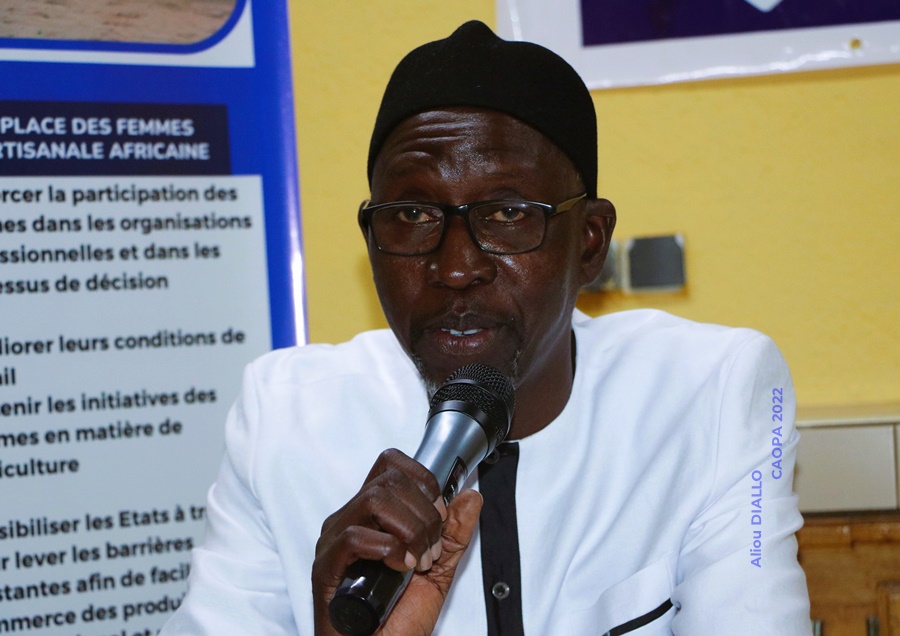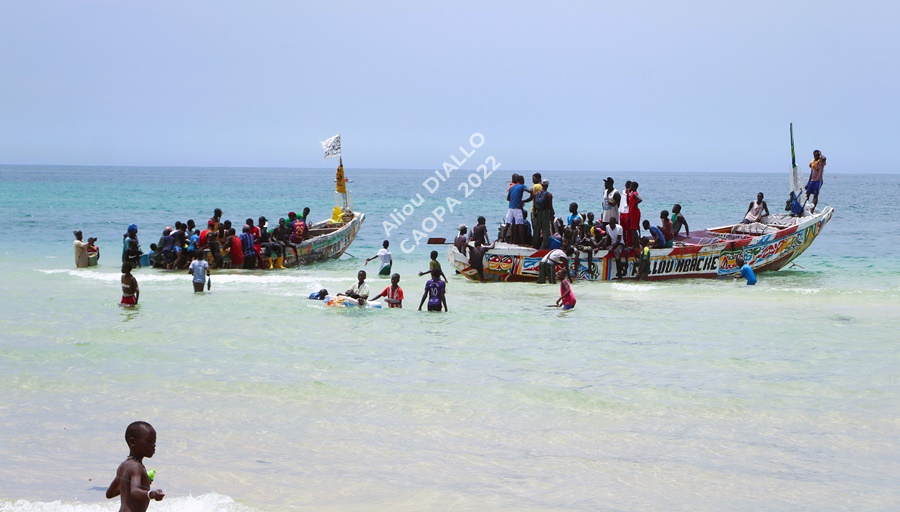Seafarers’ Day is celebrated every year on 25 June. This year, 2022, the theme chosen by International Maritime Organization (IMO) is: “Your voyages – past and present, share your sea journeys”. Seafarers all have different backgrounds, but all face similar challenges. The aim is to look at the journeys of seafarers, what they have consisted of, how things have changed over time and what remains at the heart of the seafarers’ reality.
On this occasion, the African Confederation of Professional Organizations of Artisanal Fisheries (CAOPA) calls on African states to work to improve the working conditions of African artisanal fisheries actors.
The continental organization stresses that there are international instruments to improve working conditions in the artisanal fishing sector. This is the case of the ILO Convention 188 on Work in Fishing, and the FAO Voluntary Guidelines for Sustainable Artisanal Fisheries and the FAO guide.
- ILO Convention 188 on work in fishing
The Labour in Fishing Convention, adopted in 2007 by representatives of governments, workers and employers at the International Labour Organisation (ILO), aims to “ensure that fishers enjoy decent conditions of work on fishing vessels with respect to minimum requirements for work on board, conditions of service, accommodation and food, occupational safety and health protection, medical care and social security”. This text deals with various aspects not covered by the previous instruments: repatriation, recruitment, on-board medical care, occupational health and safety, social protection, compliance and enforcement.
Compared to other ILO instruments dealing with fisheries, CAOPA notes that this is the first time that a convention also covers inland and maritime artisanal fishing. The Convention includes in its scope large and small vessels, both decked and open, and fishers on board.
Countries that ratify the Convention will need to develop laws, regulations or other measures that address a range of issues that are essential to promote safe and decent working conditions in small-scale fisheries.
For governments to be truly capable of enforcing laws and regulations, a major reorientation or rationalization of the administrations in charge of fisheries, maritime affairs, ship safety and Labor will be necessary. Such a change is essential to help African countries adopt relevant legislation.
Four African countries have ratified ILO Convention 188 on work in fishing: Congo (2014), Angola (2016), Namibia (2018), Senegal (2018)
“We recommend that other African countries follow the example of these four countries and ratify ILO Convention 188 on work in fishing, and seek ways and means to apply it in order to improve the working conditions of artisanal fishermen,” pleaded the President of CAOPA, Gaoussou GUEYE.

Gaoussou GUEYE, President of CAOPA
- The FAO Voluntary Guidelines for Sustainable Small-scale Fisheries and the FAO guide to social sustainability in fisheries and aquaculture value chains
The entire value chain of artisanal fisheries is not covered by ILO Convention 188.
The improvement of working conditions is one of the main concerns of women in African artisanal fisheries. This concern has been addressed by the Voluntary Guidelines for the Sustainability of Artisanal Fisheries in the Context of Food Security and Poverty Eradication, notably in the chapter:
Social development, employment and decent work:
In this chapter, the Guidelines provide information on the socio-economic situation of male and female workers in the artisanal fisheries sector and their communities.
“States must promote the protection of workers in the artisanal fishing sector. […] States must take steps to progressively achieve the right to work in conditions that comply with international and national human rights standards.
All parties shall endeavor to ensure that occupational health and safety is taken into account as an integral part of fisheries management and development initiatives in the sector,” reads this chapter of the SS Voluntary Guidelines.
To this end, CAOPA recommends that African countries ”implement the FAO Voluntary Guidelines for the Sustainability of Artisanal Fisheries through National Plans of Action that are developed in a transparent, participatory and gender-sensitive manner”.
Aliou DIALLO


